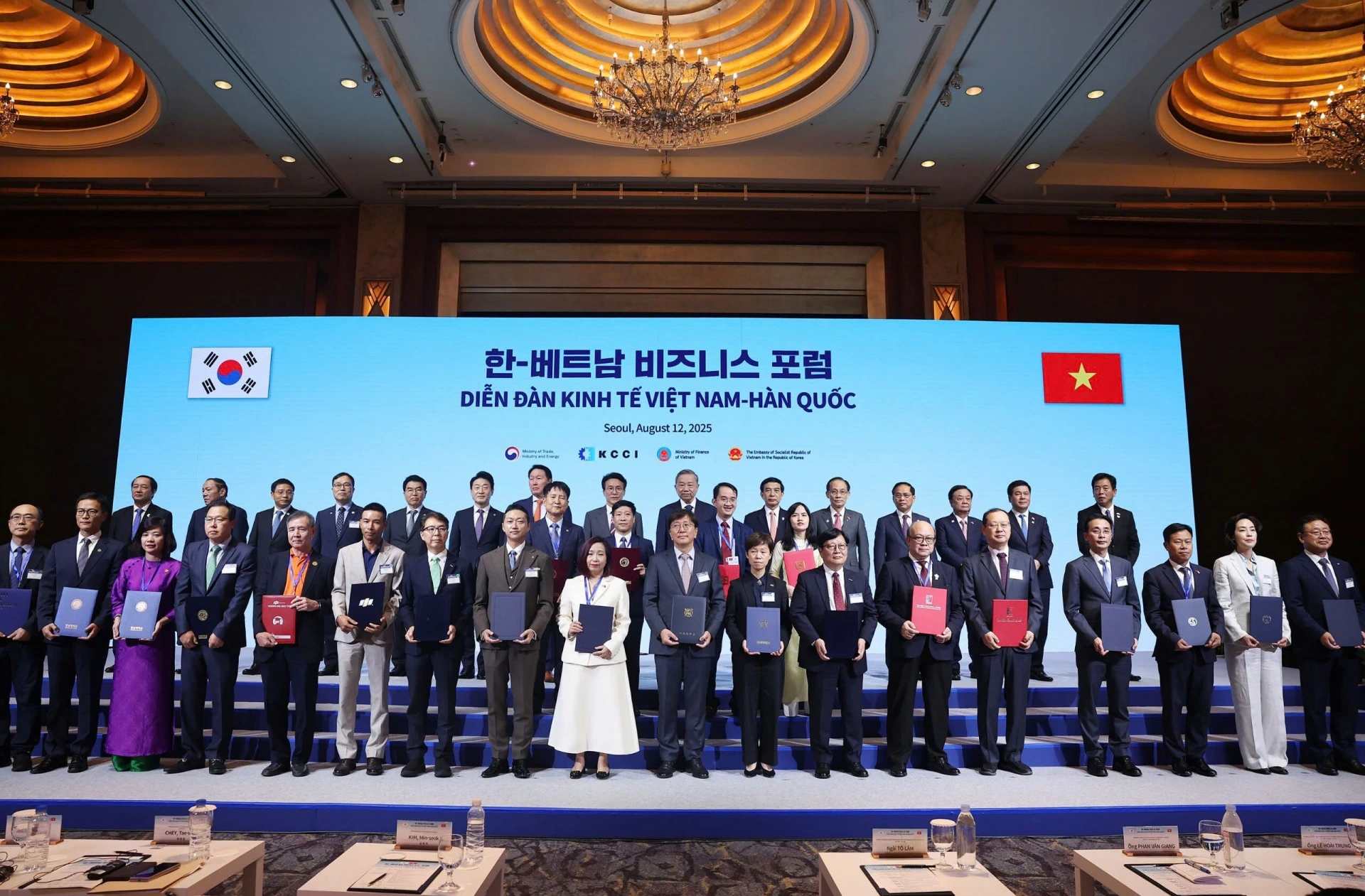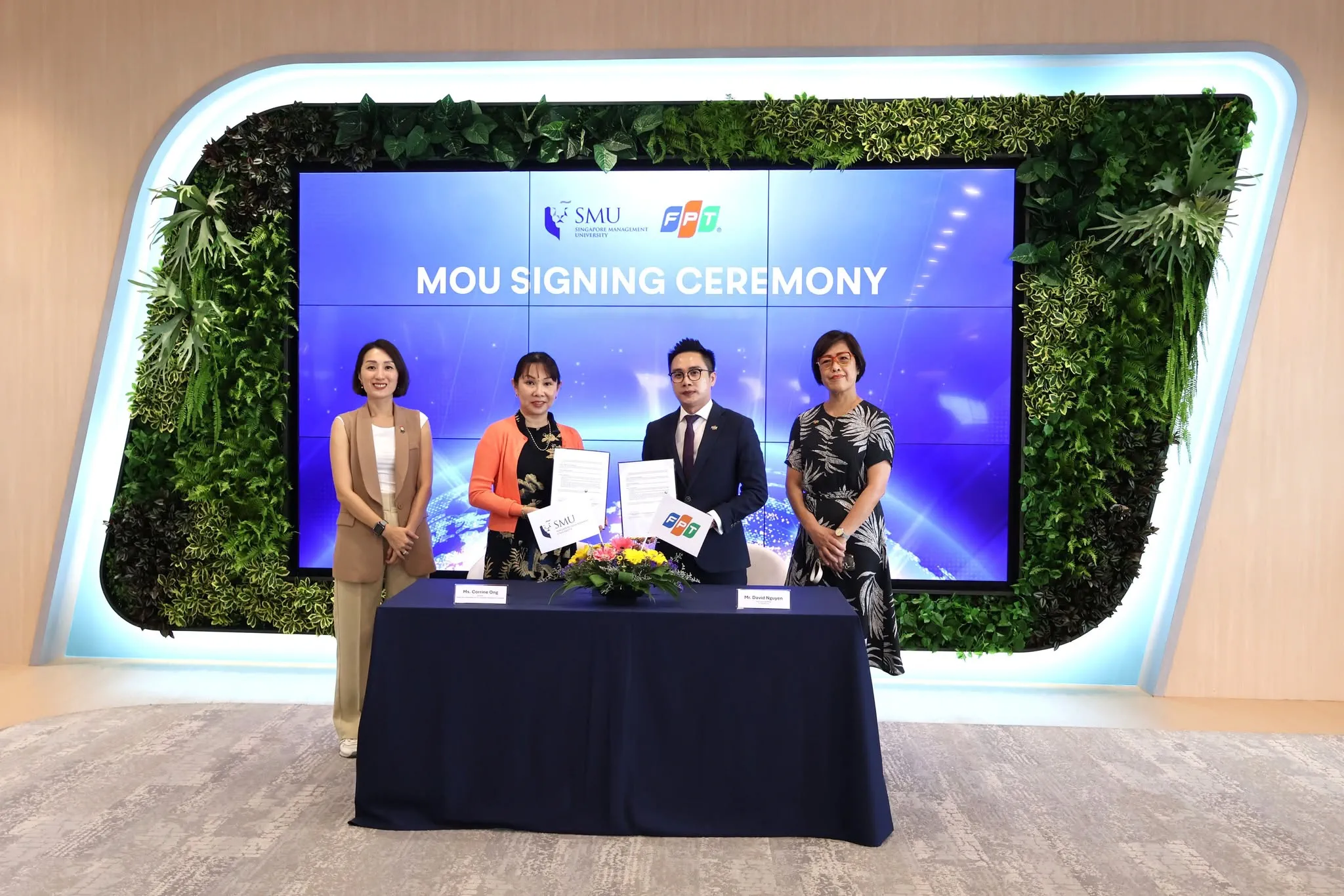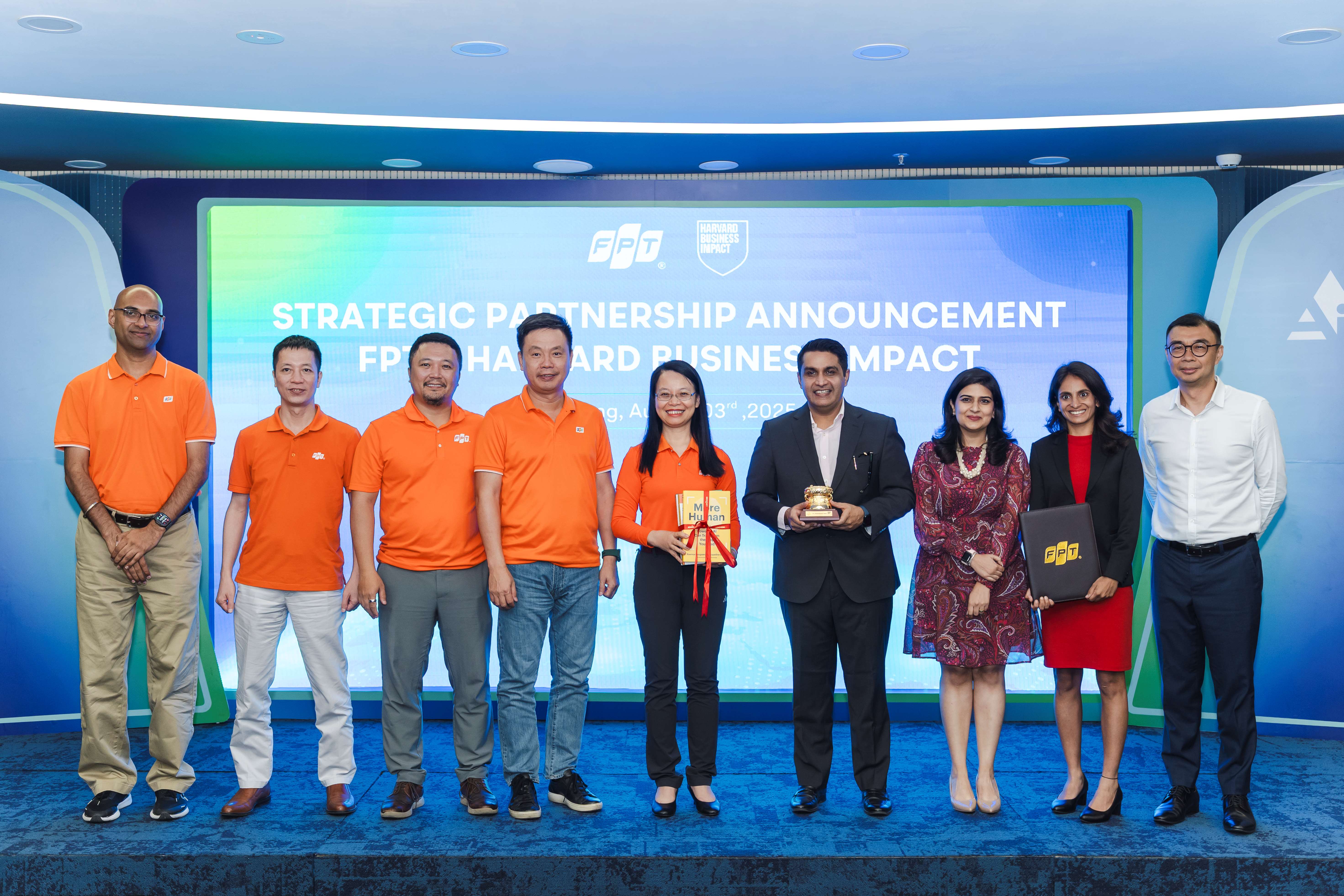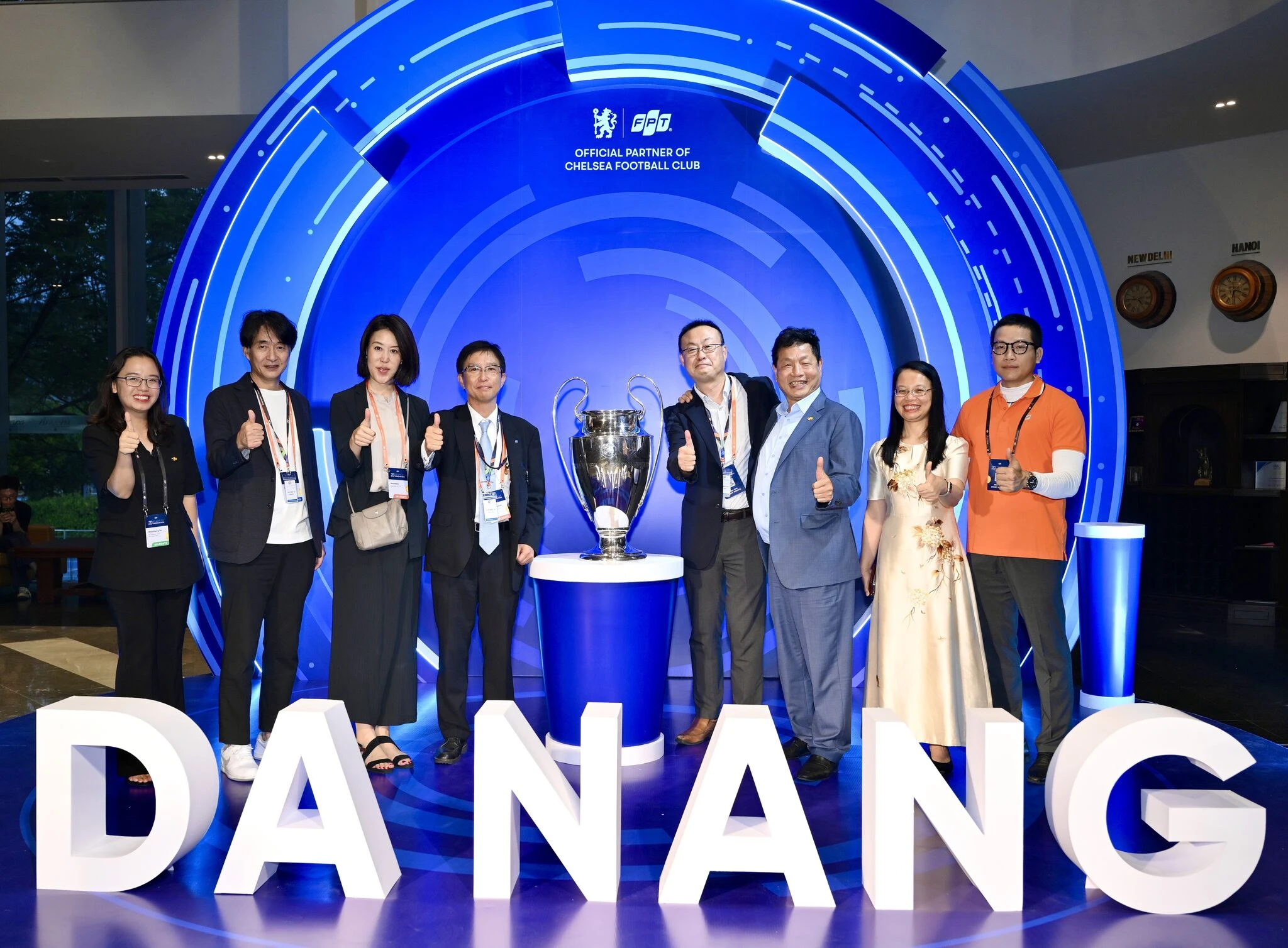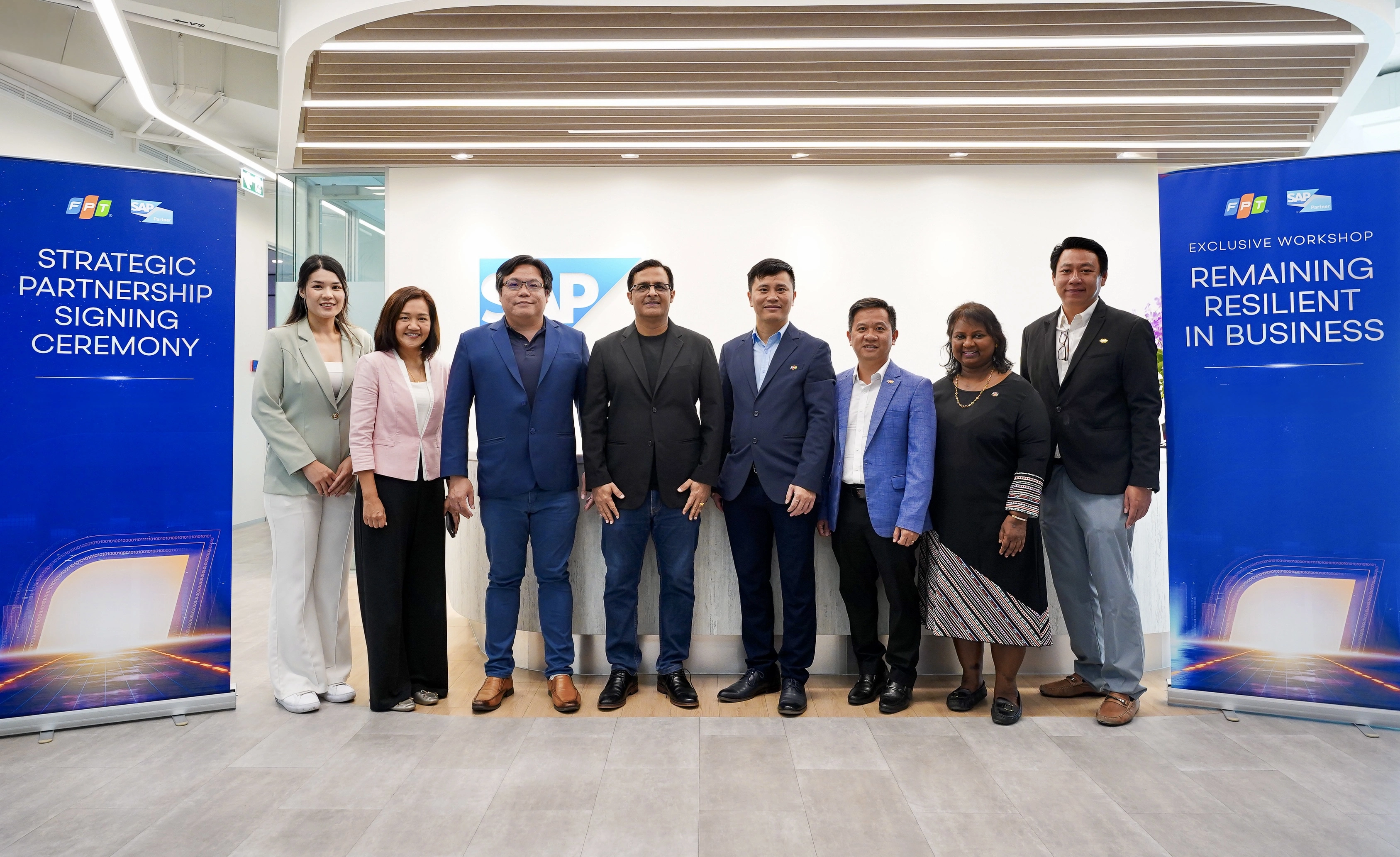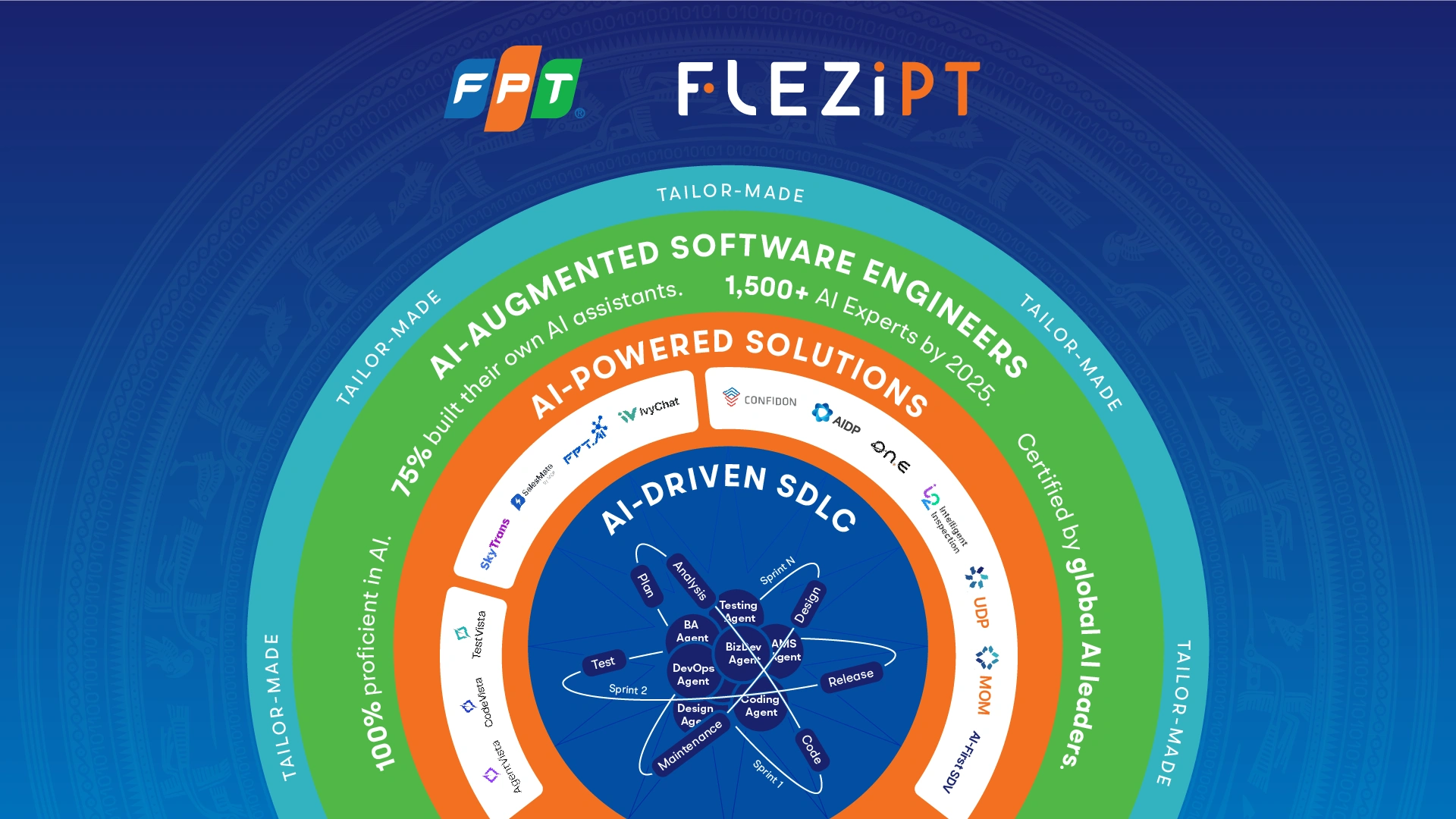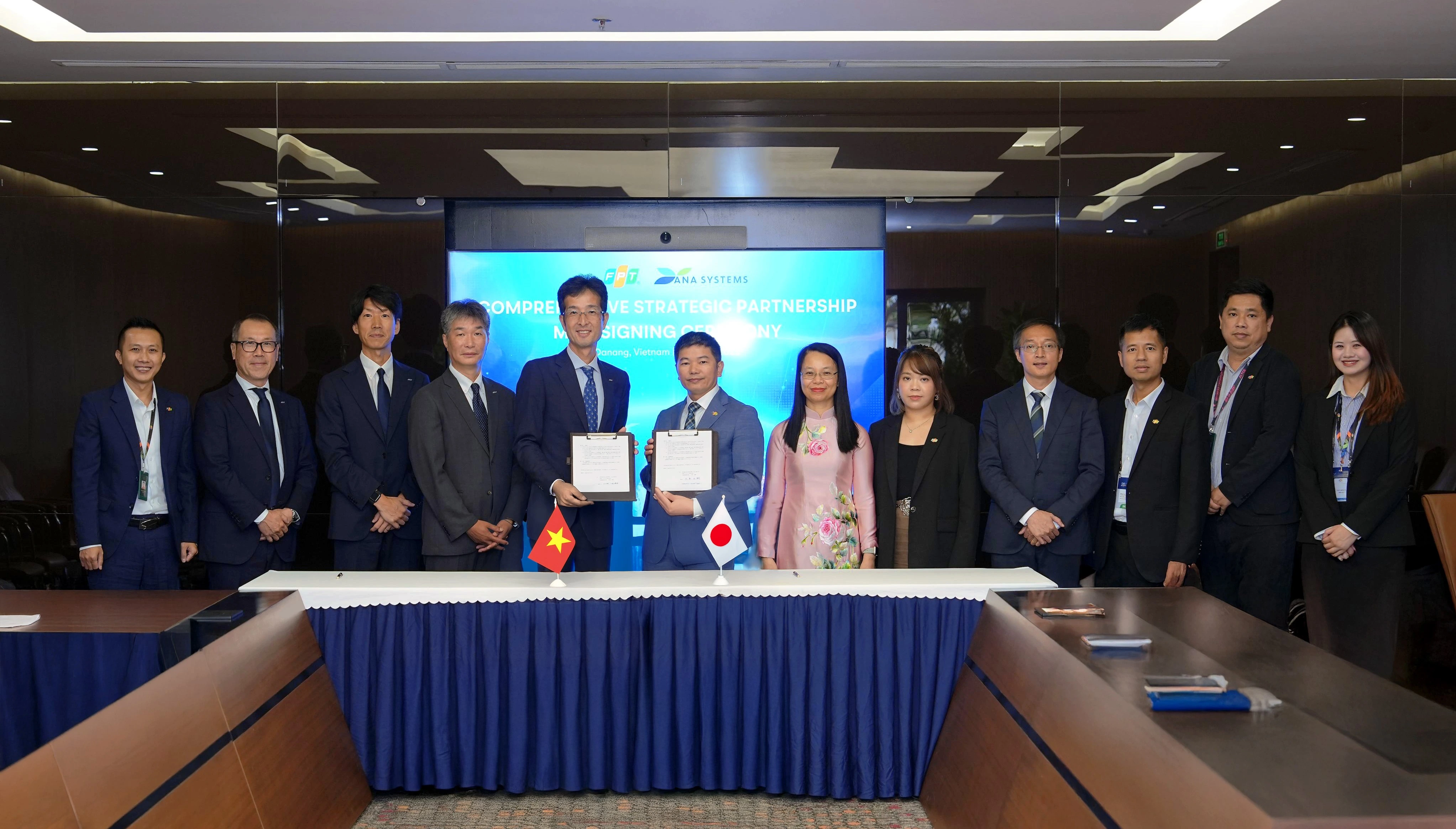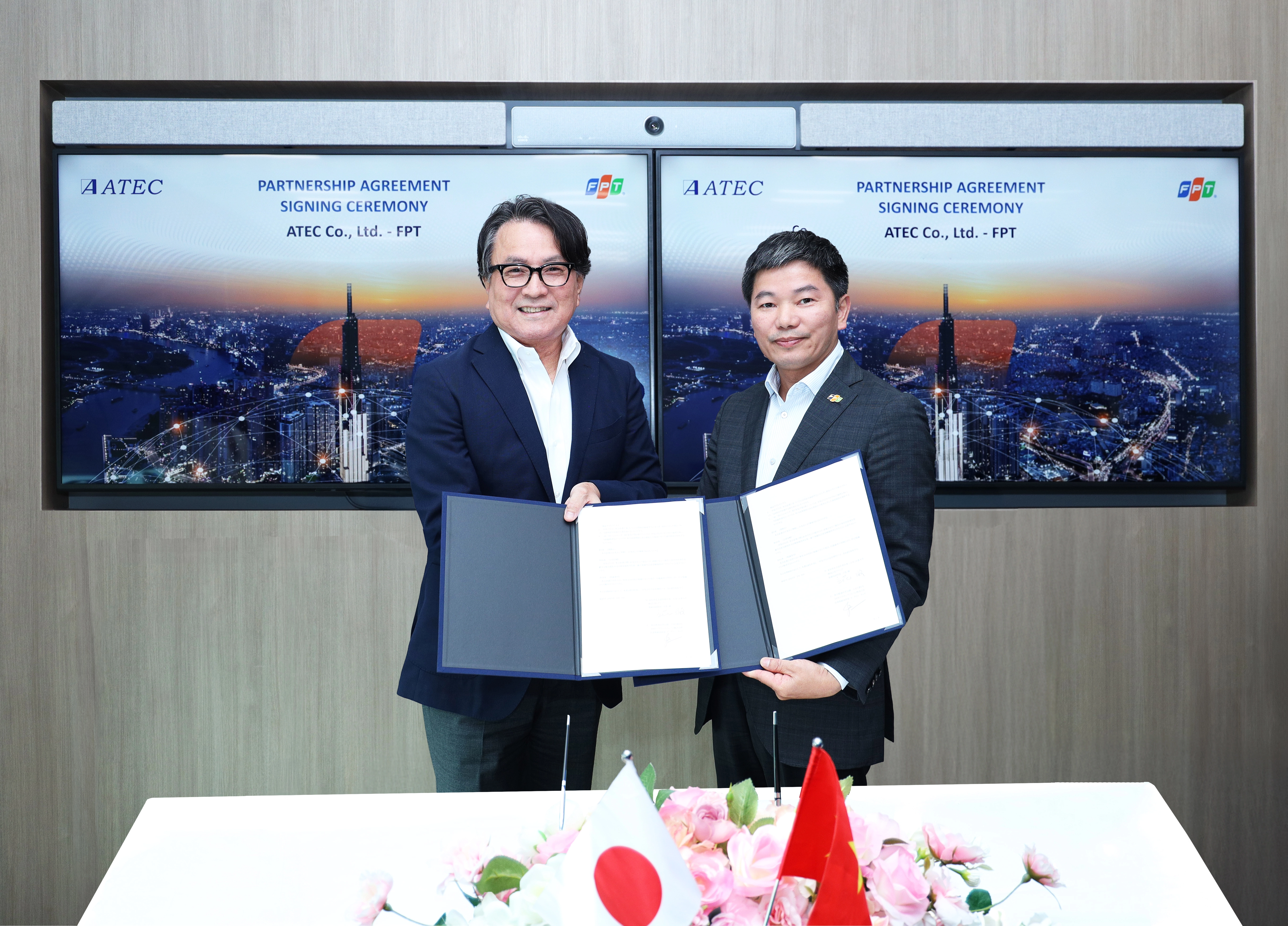More than just a tool, AI is positioned as the future of the corporate world, a driving force behind operations, business strategy, and organizational transformation. It is the key to breaking boundaries, expanding global reach, and establishing the company as a world-class AI-driven organization.
The world is at a turning point. For FPT, the challenge is no longer just technological competition but answering a defining question: "AI or not AI?" In this interview, Mdm. Chu Thi Thanh Ha, FPT Software Chairwoman, FPT Corporation, discusses the company's bold vision to make AI accessible to all.
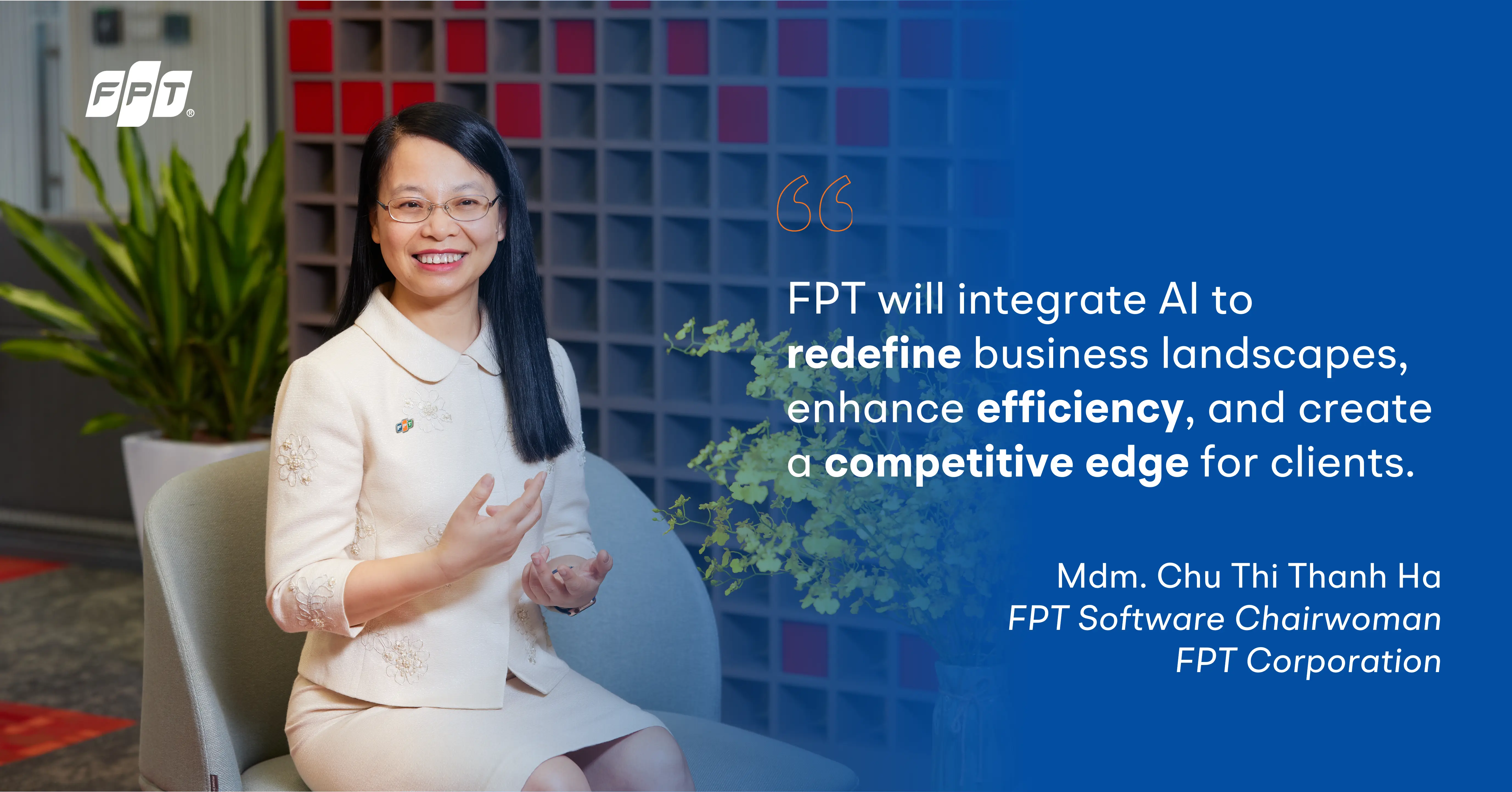
UNLOCKING AI’S FULL POTENTIAL
One of FPT’s 2024 strategic directions is AI, with the global IT services subsidiary rallying around the phrase “AI or not AI.” Why is this vision deemed critical to the company’s future?
In recent years, AI has evolved from a niche topic to a global norm. Every client, regardless of industry—automotive, insurance, healthcare, logistics, or e-commerce—asks the same question: “What AI capabilities does FPT offer? In which areas has AI been implemented, and for whom?”
At the same time, the emergence of AI-powered tools and workforce reductions at major tech corporations have fueled concerns across the workforce. From young people choosing careers to seasoned professionals with decades of expertise, all are concerned about being replaced by AI agents.
As a tech firm, FPT sees AI’s impact at every level. Every employee interacts with AI daily, but it wasn't until ChatGPT and the 2024 Nobel Prize-winning AI research in Physics and Chemistry that we fully grasped the magnitude of change AI brings to humanity and FPT's future.
.webp?modified=20240423064956)
FPT has been accelerating AI investment with strategic partnerships to drive global innovation and transformation
Our AI journey, however, began years ago. The partnership with Mila-Quebec AI Institute founded by Professor Yoshua Bengio, one of the “Godfathers” of modern AI, laid a strong foundation for fostering a highly capable AI team at FPT. Mila has been instrumental in training FPT’s talent, from hosting scientific seminars to sending experts to Vietnam and including our top engineers in their projects.
Other strategic partnerships reinforce this momentum, such as the collaborations with Landing AI to apply computer vision technology in manufacturing processes, quickly and efficiently detecting production defects through images and videos. We also recently partnered with NVIDIA to establish AI Factories in Vietnam and Japan, further strengthening the infrastructure for AI innovation.
At the 2024 FPT Strategic Conference, Artificial Intelligence also defined our long-term direction, becoming a strategic focus for the corporation. AI is more than just a trend; it’s a matter of survival that not only do we need to participate, but we also have to lead the way. We’re now standing at a historic crossroads with a unique opportunity to become a world-class AI-driven organization.
What are the objectives of “AI or not AI?” How will AI be embedded into daily life?
By 2025, we have set two primary AI goals:
The first is AI adoption across all internal operations. AI will be embedded into every department, from production units to back-office and business assurance. Even non-technical divisions are encouraged to explore and apply AI in daily tasks. Employees are also urged to complete AI courses on platforms like Udacity, Udemy, and Coursera to gain essential, comprehensive training.
Another one is AI as a growth engine for unlocking new business opportunities. In 2024, our AI-driven projects generated approximately $15 million in revenue—a modest sum compared to the total global IT services revenue. Our goal for 2025 is to triple that figure, aiming for $50 million.
Looking ahead to 2025, FPT is committed to embedding AI as a core operational pillar. AI principles and governance frameworks will be developed to ensure safe and innovative adoption. Each individual will also need to understand AI's role in their work and take ownership of its implementation.
How will FPT achieve these ambitious goals?
We recently welcomed AI luminaries and Turing Award winners Professor Yoshua Bengio and Professor Yann LeCun, VP and Chief AI Scientist at Meta, to Vietnam. During our conversation, they shared two pivotal insights that are shaping our AI strategy:
First, understand the context. Effective AI deployment requires a deep grasp of industry-specific processes, whether in retail, automotive, or healthcare. Without this knowledge, we can’t effectively apply AI to create meaningful value. This principle also applies to internal operations.
A compelling example is our project with a world-leading Australian university. The project required processing brain image data, necessitating close cooperation with doctors from Viet Duc Hospital (Vietnam). These doctors played a crucial role in providing initial data analysis, allowing AI models to be trained effectively. Understanding hospital operations, workflows, real-world contexts, and medical data security regulations was essential. To address this, FPT is expanding training beyond traditional IT certifications to include industry-specific credentials. This foundational knowledge and insights will enable us to ensure our services and solutions are tailored and impactful.
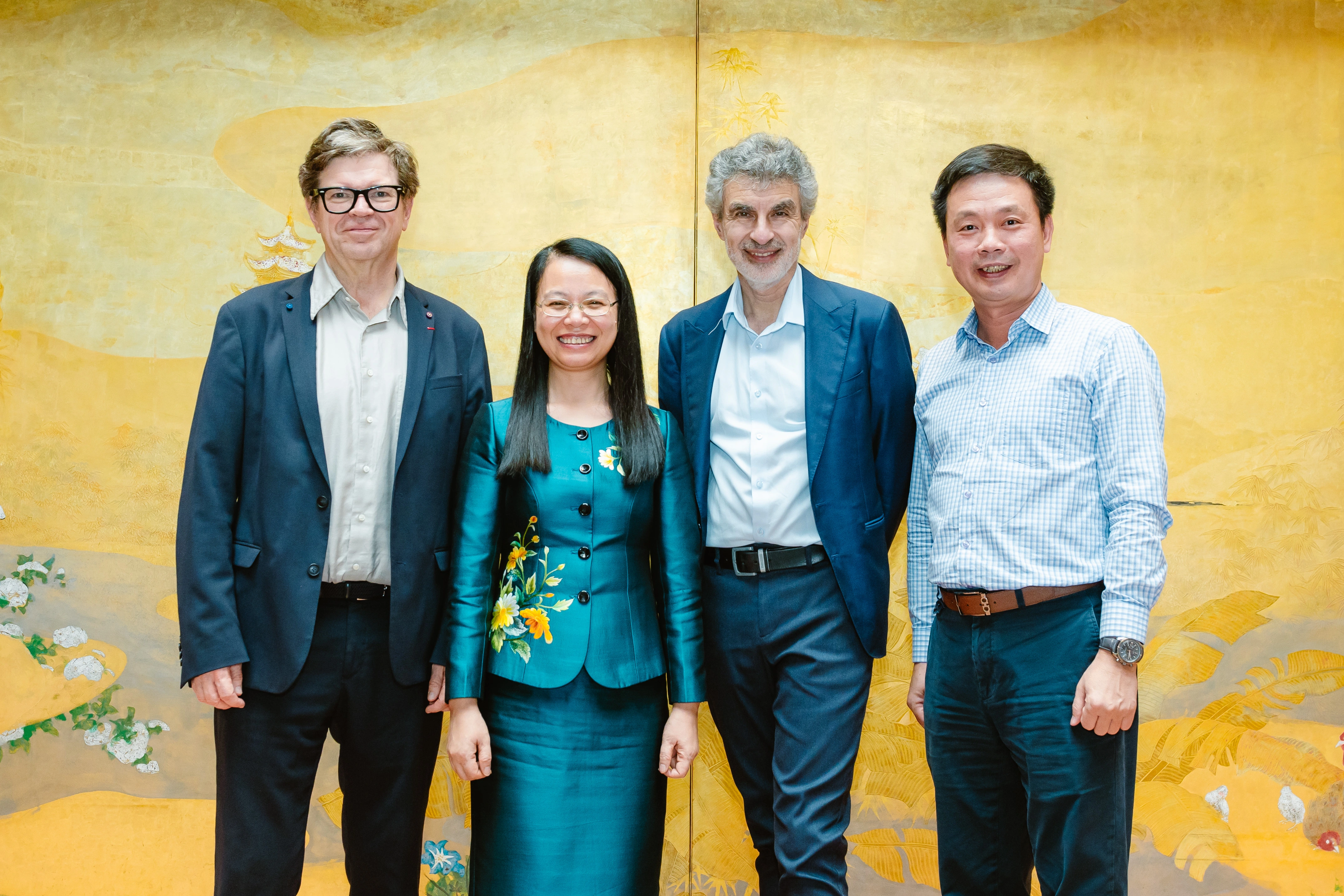
FPT welcomed the world-renowned "Godfathers of AI" on their first visit to Vietnam, charting the path towards responsible and ethical AI development that best serves humanity in an increasingly digital world
The second piece of advice is AI mastery comes through experience. Unlike other fields with decades of established knowledge, AI lacks a predefined roadmap. The only way forward is through learning by doing. FPT's strength lies in its young, dynamic, and fast-learning workforce. This is a significant advantage that we must leverage. By fostering a culture of "learning by doing," we will be able to accelerate AI expertise, pushing boundaries with each project.
THE ROADMAP TO AI INTEGRATION
How does FPT promote AI adoption, given that it is not a short-term endeavor and technology, especially AI, evolves rapidly?
FPT is committed to ensuring seamless and accessible AI adoption at all levels, from leadership to frontline teams. We encourage wide adoption of AI tools such as CodeVista, an AI-powered tool for automated code generation, and TestVista, an AI-driven platform for automated software testing. Employees are encouraged to provide feedback, allowing continuous product refinements. AI evolves on data, and its effectiveness increases with greater usage and refinement.
At the same time, AI should not be perceived as complex or intimidating. Employees are encouraged to start with simple applications, such as asking questions like, “How can I do this task faster and more efficiently with AI?” With this mindset, AI will naturally and seamlessly integrate into our daily work lives.
Adopting new technology is challenging. Does FPT face difficulties in implementing AI, particularly regarding employees' psychological barriers?
I don't see any significant obstacles. FPT's culture thrives on curiosity and embracing innovation. Young employees, in particular, are always quick to experiment and adopt advanced technologies into their work. This adaptability is one of the company’s greatest strengths.
The key factor is alignment. When employees recognize that consistent learning and incremental improvements lead to meaningful transformation, success follows naturally.
Beyond business, can you share any specific results from AI applications within FPT Software?
Not all AI-driven improvements can be quantified. However, if employees feel that AI tools enhance efficiency and simplify their work, that in itself is a success.
For me, AI tools like ChatGPT and Copilot have become invaluable assistants, streamlining research, fact-checking, and real-time discussions during client meetings. These efficiencies scale exponentially when thousands of employees integrate AI into their daily work.
How has the workplace culture evolved with the increased application of AI?
The biggest transformation has been speed. Tasks that once required half a day or even an entire day, like compiling information and drafting detailed customer emails, now just take an hour.
AI has also streamlined complex processes, including data analysis, document preparation, and report generation. These efficiencies not only improve speed but also enhance quality and precision.
This shift enables us to meet customer demands faster while maintaining high standards. AI is truly reshaping the way we work every day and every hour.
A FUTURE SHAPED BY AI
Customers are now allocating significant budgets for AI investments, and FPT’s competitors are advancing rapidly. How can FPT seize the opportunity, accelerate deployment, and differentiate itself from global competitors?
The demand for AI is ubiquitous. Across industries, businesses are leveraging data to refine models, optimize business processes, and expand market reach. AI is no longer an experimental investment; it is a core budget priority, spanning hardware, platforms, software, and real-world applications.
And in this competitive landscape, speed is everything. The companies that hesitate risk being left behind.
Infosys Founder N.R. Narayana Murthy highlighted a key shift during his visit to FPT. Traditionally, firms responded to client requests with internal discussions, spent two weeks crafting proposals, and then presented slides or demo videos showcasing their capabilities. That approach is now outdated.

Infosys Founder N.R. Narayana Murthy shared a conversation regarding “Accelerating Values" during his trip to Vietnam
Today, leading companies have moved beyond this. While analyzing client requirements, they also immediately mobilize cross-functional technology teams, including client’s domain experts, to collaborate and develop solutions. Within two weeks, instead of just pitching ideas, they deliver working prototypes that demonstrate tangible value, leaving a lasting impression and securing client confidence. Without robust AI capabilities, we risk falling behind in this rapidly evolving landscape.
To address this, FPT is cultivating a team of AI consultants with extensive domain expertise, who can anticipate industry-specific AI needs, identify application trends, and collaborate closely with clients. These consultants must go beyond merely requesting experts at AI Lab and AI Factories to develop “Domain AI Assistants” capable of meeting various requirements; they must actively work with clients to assess business conditions and tailor AI solutions that drive measurable impact. This extensive pool of AI experts, alongside world-class scientists, will also serve as the backbone of FPT’s success in AI-driven projects.
How do international clients perceive FPT’s continuous enhancement of its AI capabilities?
Clients worldwide highly recognize FPT’s AI capabilities. When visiting our facilities, they are consistently drawn to our AI competency showcase, eager to see firsthand what we have achieved.
One of the most compelling differentiators is the FPT AI Campus in Quy Nhon, where we nurture young AI talents with specialized training programs. We also run programs such as the two-year AI Residency, where young professionals participate in real-world projects to gain in-depth technological knowledge and practical experience.
These initiatives demonstrate FPT’s long-term commitment to AI development and showcase our young, dynamic, and creative workforce. They build lasting trust, positioning FPT as a preferred partner for digital transformation and AI-driven business optimization.
Looking ahead, how do you see FPT positioning itself as a global leader in AI applications?
AI is poised to transform the operations of many industries and sectors. I recently witnessed an AI-powered logistics system in action when visiting a client in Singapore. In the older ports, container trucks still required human drivers. In contrast, the new system was fully automated, leveraging AI in every aspect of the system, not only boosting operational efficiency but also significantly reducing risks and costs. Data from hundreds of autonomous vehicles was continuously updated, enabling the system to make accurate predictions about the least congested times or issue warnings during adverse weather conditions to optimize transport operations.
This aligns perfectly with FPT’s vision: integrating AI into key sectors such as logistics, healthcare, automotive, and energy, not just to solve problems, but to fundamentally reshape business landscapes, enhance efficiency, and create a competitive edge for clients.
The future belongs to organizations that harness AI’s full potential. To lead this transformation, FPT remains dedicated to investing in AI expertise, fostering innovation, and scaling AI-driven solutions across industries.
Becoming a world-class AI-driven organization is not just an aspiration, it is our roadmap to the future.






























